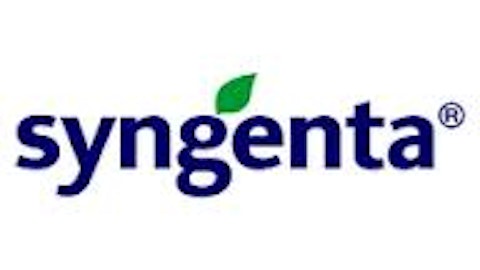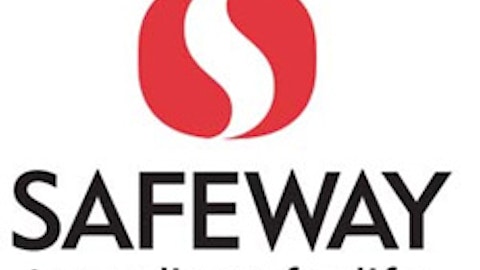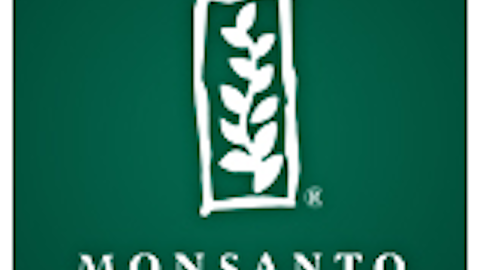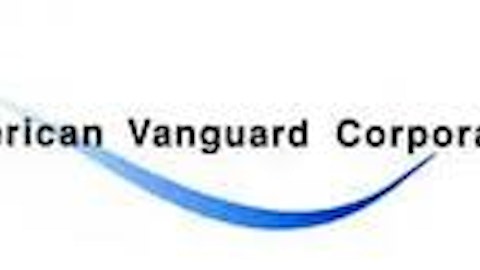“The rich will eat organic and the poor will eat poison,” went one comment in reply to a story quoting New York Times food columnist Mark Bittman that labeling genetically modified foods isn’t a”radical, communist plot.”
It used to be the Food section of a newspaper was for homey recipes. Now, it’s full of food politics stories from the front page.
Big deal over a little label?
Political initiatives for Genetically Modified Organisms (GMO) labeling keep cropping up, despite the efforts of chemical companies Monsanto Company (NYSE:MON), The Dow Chemical Company (NYSE:DOW), and DuPont Fabros Technology, Inc. (NYSE:DFT) to thwart the GMO-labeling groundswell. Another statewide initiative is up for a vote in Washington, which would require labeling of GM food. A consortium of Monsanto, Dow, DuPont and PepsiCo, Inc. (NYSE:PEP) spent over $45 million to successfully defeat California’s Proposition 37 for mandatory labeling of genetically modified food last fall. Expect more millions to be spent in Washington state.
In Washington, DC, Sen. Barbara Boxer (D: CA) isn’t giving up after the California Prop 37 defeat, introducing to Congress, along with Rep. Peter DeFazio (D: OR), the Genetically Engineered Food Right-to-Know Act, which would require FDA labeling for all genetically engineered foods. The proposed bill has received bi-partisan support in the House and Senate, and is currently in committee.
Since1992 the FDA has maintained these foods are not materially different in terms of taste or smell, so there is no need to label them–but all the initiatives ask for is a label, not to ban or restrict GM seeds. What’s the big deal about a little label?
The big deal is that demand for non-GMO certified food is up 18%, and many large food manufacturers are buying into the organic thesis, including Campbell Soup Company (NYSE:CPB), B&G Foods, Inc. (NYSE:BGS), Unilever N.V. (ADR) (NYSE:UN), and The Hain Celestial Group, Inc. (NASDAQ:HAIN). Whole Foods Market, Inc. (NASDAQ:WFM) will require all genetically engineered foods products it sells in the US and Canada to be labeled as such by 2018. Ninety percent of US consumers want such labeling.
Sixty-four countries either have restrictions or outright bans on genetically modified crops. Fifty countries require GMO labeling. Although most of the European Union bans GM crops, Friends of the Earth has found traces of the Roundup herbicide active ingredient glyphosate in 44% of the urine of European city dwellers tested. Friends of the Earth charges that glyphosate has been linked to cancer risk, birth defects, miscarriage, and other unfortunate medical issues. This finding comes as the European Union mulls whether or not to approve 14 new GM crops that will require glyphosate.
Monsanto vs farmers
Over the course of thirteen years (1997-2010), Monsanto Company (NYSE:MON) has sued 144 farmers for not paying royalties on crops that had been inadvertently contaminated by Monsanto’s Roundup resistance seed trait. Monsanto won.
Meanwhile, Idaho wheat farmers are suing Monsanto for contaminating their wheat, which resulted in lower prices. The farmers contend the entire wheat export market has been adversely affected, with countries like Japan rescinding orders for all soft white wheat.
The chemical giant has a history of controversy, from Agent Orange and dioxin to recombinant bovine growth hormone. Two million marched against Monsanto Company (NYSE:MON) in May (according to the New York Times), and a Moms against Monsanto march is planned for the Fourth of July.
Why buy Monsanto Company (NYSE:MON)’s headline risk? Its yield is only 1.50% with a trailing P/E of 22.48. Its PEG of 1.74 shows it’s not growing that well. If socially responsible investing is not your cup of green tea, there are legions of stocks with lower PEGs and higher yields even in the chemical or agriculture industries.
Warren Buffett likes largest global agricultural equipment manufacturer Deere & Company (NYSE:DE); and why not, with a 2.40% yield, a .99 PEG and a 10.54 trailing P/E. It has raised the yield 11 times since 2004, and did so again in March for an 11% increase. The payout ratio is low at 23%, and there’s time to get in before it goes ex-dividend on June 26.
Deere is also exposed to a housing recovery with its Forestry and Construction divisions. The stock is down almost 10% from its high of $95.60. The main drawback to Deere is its high amount of total debt at $34.08 billion to total cash of $4.15 billion. Some of that is to be expected with a company that runs its own financing unit for customers. Deere has the lowest corporate governance risk score of 1, and has been in business since 1837.





